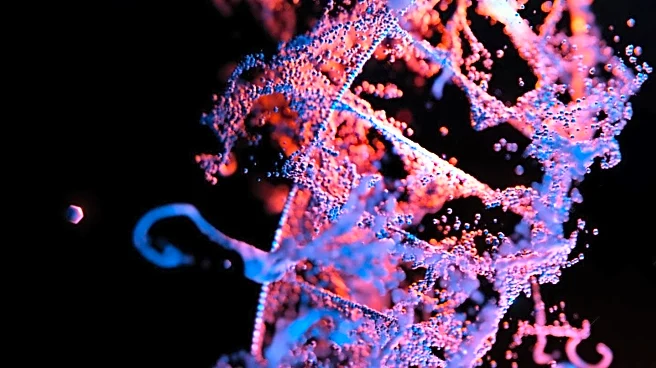What's Happening?
A study published in Nature has identified a specific macrophage subpopulation driven by Galectin-9 that contributes to the immunosuppressive environment in lymph node metastases. The research involved a pan-cancer single-cell transcriptomic analysis
across 11 cancer types, revealing that these macrophages produce IL-10 and activate the BTK/STAT3 pathway, promoting immune tolerance. The study suggests that inhibiting STAT3, combined with PD-1 blockade, can reduce metastatic burden, offering a potential therapeutic strategy.
Why It's Important?
Understanding the mechanisms of immune suppression in lymph node metastases is crucial for developing effective cancer treatments. The identification of the Galectin-9/BTK/STAT3 axis provides insight into how cancer cells evade immune detection, which is a significant barrier to successful therapy. Targeting this pathway could enhance the efficacy of existing treatments, such as immunotherapy, and improve patient outcomes by reducing metastasis and potentially preventing cancer progression.
















